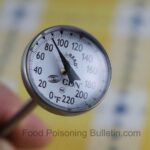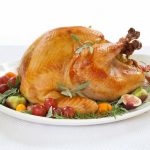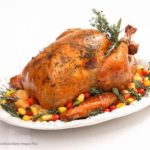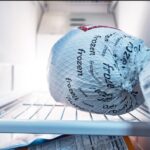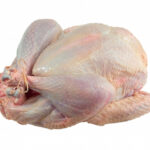Get Super Bowl delivery and takeout food safety advice from the USDA to keep your guests safe from food poisoning at your party. There are special rules for handling takeout and delivery foods. If you ordered takeout or Super Bowl delivery foods the day before the game, make sure that someone is available to get the food inside your home and into the fridge in a timely manner. All food that is not going to be eaten immediately should be refrigerated. If you ordered the food for delivery the day of your party, refrigerate cold foods if it's more than two hours before it's time to eat. You may want to reheat foods before serving. If you are serving food to groups, the two hour rule is critical. Perishable foods cannot be in the danger zone of 40°F to 140°F for more than two hours. … [Read more...]
Keep Pets Safe From Holiday Hazards With Tips From FDA
Keep pets safe from holiday hazards with these tips from the FDA. There are many smells, sights, and sounds that may be unfamiliar to curious dogs and cats this time of year, and some can be hazardous to your pet's health. Salt dough ornaments and homemade play dough can be fatal to pets if eaten. The high salt content is the concern. Make sure that you warn your children to keep these items away from your dog or cats as well. One cup of salt is 48 teaspoons. A pet that weighs 10 pounds can get sick after eating just 1/2 teaspoon of table salt. A 1-1/2 teaspoon dose can be fatal. Tinsels and ribbons are also problematic. The sparkly and wiggly items look like prey, and they can cause serious stomach and intestinal damage to dogs and cats. Keep tinsel off the tree and collect all … [Read more...]
Store Thanksgiving Leftovers Safely to Stay Healthy
After the holidays, one of the best things is having lots of great leftovers to eat. But you need to store Thanksgiving leftovers safely to stay healthy. Here are some rules to follow from Food Safety.gov. Food safety starts as soon as you take the food out of the oven or the refrigerator to serve it. Make sure that all perishable foods, which include meats, cheeses, cut fruits and vegetables, and casseroles, are put into the fridge or freezer within two hours. That time period shrinks to one hour if the ambient air temperature is above 90°F. Divide the food into smaller portions so it cools quickly. A whole turkey or a large casserole will take too long to cool down, meaning it can stay in the danger zone of 40°F to 140°F too long. In that temperature range, pathogenic bacteria … [Read more...]
Alternate Turkey Preparation Methods From the USDA
The USDA is offering tips on alternate turkey preparation methods for the Thanksgiving holiday. If you choose to prepare turkey other than roasting it in the oven, read carefully to avoid food poisoning or injuries. Whatever method you use, make sure that the turkey reaches 165°F, a temperature that must be read with a reliable and accurate thermometer. First, do not cook the turkey in brown paper bags from the grocery store. That product can emit toxic fumes and may cause a fire. The ink, glue and recycled materials in brown paper bags are especially toxic. Electric Roaster Oven If you choose to use an electric roaster oven, the cooking times and temperatures should be the same as in a conventional oven. But always read the user manual for the manufacturer's instructions. The … [Read more...]
Learn How to Cook Turkey Stuffing Safely From the USDA
Learn how to cook turkey stuffing safely with tips from the USDA. Turkey stuffing is risky because it's a large mass of food cooked inside the bird, so getting the mixture to a safe final internal temperature of 165°F, especially in the center, is tricky. The USDA recommends that you do not cook your stuffing inside of the turkey, especially if your guests fall into groups that are at high risk for serious complications from food poisoning. Put the stuffing, or dressing, into a casserole dish and bake it along with the turkey. The dressing must still reach 165°F, tested with a reliable and accurate food thermometer. If you do decide to stuff the turkey, there are some rules to follow. First, never stuff the turkey ahead of time. Bacteria can multiply and grow in the stuffing … [Read more...]
Safely Thaw Your Thanksgiving Turkey With USDA Tips
Learn yow to safely thaw your Thanksgiving turkey with these timely tips from the USDA. If you bought a frozen turkey, now is the time to start thawing it so it's ready to cook on the big day. It's critical that you learn this fact: never ever thaw your turkey, or any frozen food, at room temperature unless the package specifically states that it's safe to do so. If you thaw meat products, especially, at room temperature, the product will sit at the danger zone of 40°F to 140°F for too long. And bacterial counts double in amount every hour in that temperature range. Since bacteria can produce toxins as they grow that are not destroyed by heat, cooking a contaminated turkey may not make it safe to eat. And you could get sick. The USDA says that one of the most common question … [Read more...]
Should You Buy a Fresh or Frozen Turkey For Thanksgiving?
Should you buy a fresh or frozen turkey for Thanksgiving? That holiday is next week. The USDA has some tips to make sure you have a safe and healthy dinner. Turkeys are sold both fresh and frozen. You can often order the type and size of turkey that you want ahead of time, but if you haven't done this, you need to make some decisions. Food safety is critical at all times, of course, but holiday dinners are special. You may have elderly guests at your dinner, or a pregnant woman, or small children, or someone with a chronic illness or compromised immune system. In that case, you must be very careful to make sure that the food you serve is completely safe to eat. And turkey storage and preparation play a large part in food safety. Here's what the USDA says about which type of … [Read more...]
FDA Plans to Ban Brominated Vegetable Oil in Food
The FDA plans to ban the use of brominated vegetable oil (BVO) in food, after studies conducted with the National Institutes of Health found the product is potentially dangerous for human consumption. Brominated vegetable oil is a mixture of brominated triglycerides that are made by combining bromine with unsaturated vegetable oils. BVO is authorized for use in small amounts to keep citrus flavoring from separating and floating to the top of some beverages. The FDA took BVO off the Generally Recognized as Safe (GRAS) list in 1970 and began overseeing its use under food additive regulations. Many beverage makers have reformulated their products to replace BVO. Now, few beverages available in the United States contain BVO. Scientists found that the thyroid is a target organ of … [Read more...]
Halloween Food Safety Tips From Fight Bac
These Halloween food safety tips from Fight Bac will help you have a happy and safe holiday. The tips cover trick-or-treating safety and how to host a healthy party. When your kids go out trick-or-treating, make sure they know they should not eat any candy they receive until they get home and you can check it. Look for rips or tears or pinholes in the wrapping. Throw away any homemade candy or candy that looks different or strange. And feed your kids dinner before they go out so they are less likely to want to snack on the way. If you are having a Halloween party, make sure that all perishable foods are chilled until serving time. Those foods include cheese platters, cut fruit, tossed salads, finger sandwiches, cold pasta dishes, any food with meat, poultry, or seafood, and … [Read more...]
A Government Shutdown Will Threaten Food and Water Safety
A Government shutdown will threaten food and water safety, according to Food & Water Watch. The odds are good that the government will shut down on November 15, 2023, especially given the current chaos in Congress. A shutdown would affect every area of government. WIC and SNAP benefits would be threatened. Regional VA offices may close, and critical research on diseases such as cancer and Alzheimer's would stall. The threats to human health include FDA inspectors being forced to reduce or delay inspections at food processing facilities. This will put consumers at risk of foodborne illness. During the shutdown in 2013, about 900 of these inspections were postponed. $EPA regulators could be forced to suspend safety inspections at drinking water sources, hazardous Superfund … [Read more...]


